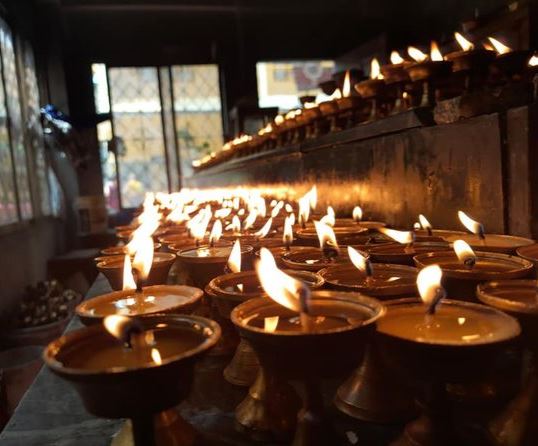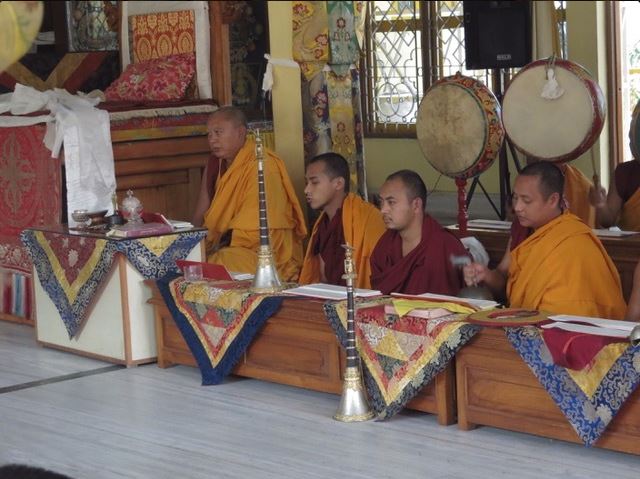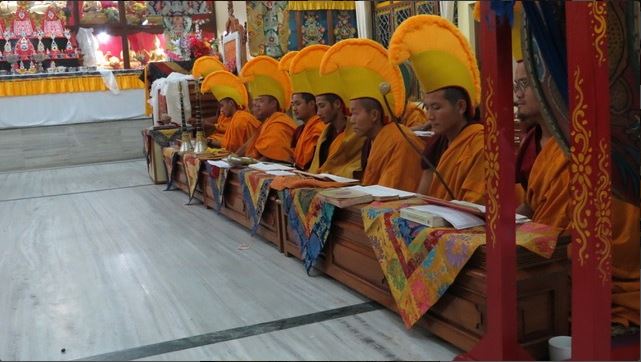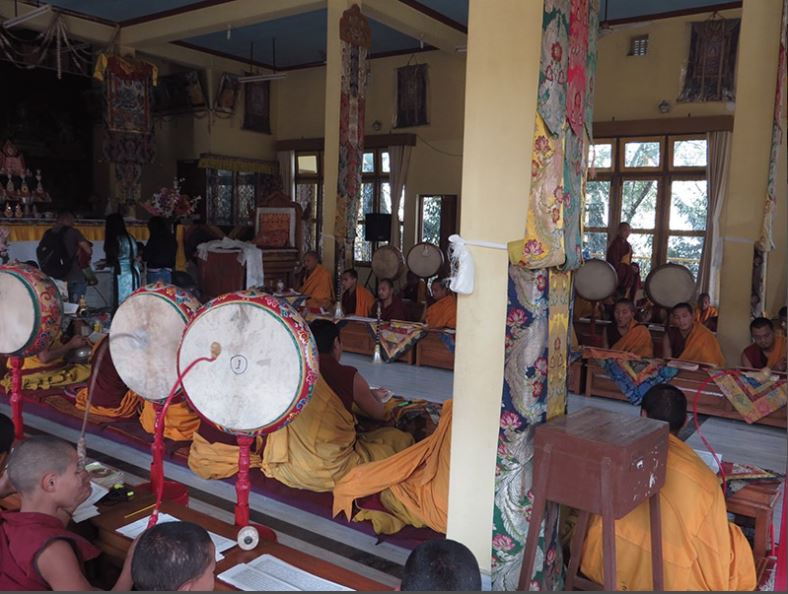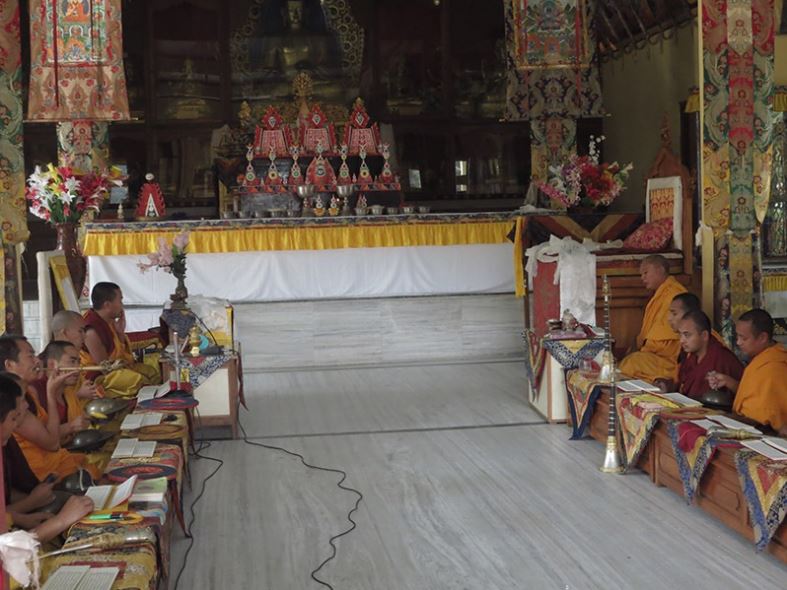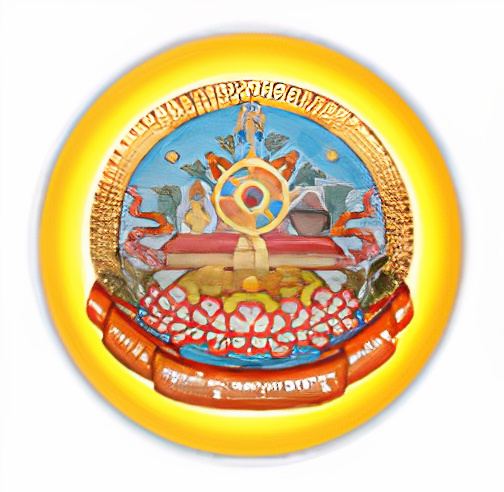Sed Gyued Monastery
Kangso Chenmo བསྐང་གསོ་ཆེན་མོ་། 所有护法供修法会
Kangso Chenmo བསྐང་གསོ་ཆེན་མོ་། 所有护法供修法会
Couldn't load pickup availability
A rite of invocation, propitiation and entreatment to protectors to remember their prayers and vows to protect Dharma and its practitioners. Also, a renewal of the vows and pledges one should keep receiving their protection.
This practice consists principally of prayers to our Dharma Protector. A Dharma Protector is an emanation of a Buddha or Bodhisattva whose main functions are to avert the inner and outer obstacles that prevent practitioners from attaining spiritual realizations, and to gather the conditions needed for their practice.
Dharma Protector helps, guides, and protects pure and faithful practitioners by granting blessings, increasing their wisdom, fulfilling their wishes and bestowing success on their virtuous activities. This practice includes a tsog offering, so vegetarian food offering will also be present.
Kangso Chenmo, also known as "Great Confession," is a traditional Tibetan Buddhist practice that involves confessing and purifying negative actions and harmful behavior that one may have committed in the past. The practice is similar to the Sojong practice but is considered to be more extensive and elaborate.
During the Kangso Chenmo practice, practitioners recite a specific prayer or confession text, which enumerates various types of negative actions and harmful behavior that one may have committed. The practitioner confesses and repents for these actions and makes vows to avoid committing them in the future. The practice is typically done in a group setting, such as at a monastery or temple, and is often led by a qualified teacher who can provide guidance and instruction.
The Kangso Chenmo practice is said to be beneficial in purifying negative actions, removing obstacles to spiritual progress, and increasing positive karma. It is important to note that the practice should be done under the guidance of a qualified teacher who can provide the appropriate teachings and instructions.
Benefits of Kangso Chenmo
The benefits of Kangso Chenmo practice, as a traditional Tibetan Buddhist practice, include:
Purifying negative actions: The practice of confessing and purifying negative actions is said to help reduce the negative effects of those actions and improve one's overall spiritual well-being.
Developing a deeper sense of ethics: The practice of Kangso Chenmo is said to help one develop a deeper sense of ethics and moral responsibility, which can lead to greater inner peace and happiness.
Improving relationships: By confessing and purifying negative actions, the Kangso Chenmo practice is said to help improve relationships with others, leading to greater opportunities for success.
Enhancing one's spiritual practice: The practice of Kangso Chenmo is said to help deepen one's spiritual practice, leading to greater understanding of the nature of the mind and reality.
Increasing Positive Karma: By confessing and purifying negative actions, the Kangso Chenmo practice is said to increase positive karma and accumulate merit.
It's important to note that the practice of Kangso Chenmo should be done under the guidance of a qualified teacher who can provide the appropriate teachings and instructions, and it should be done in conjunction with other spiritual practices such as meditation and the recitation of mantras and should not be relied upon as the only means of purifying negative actions.
